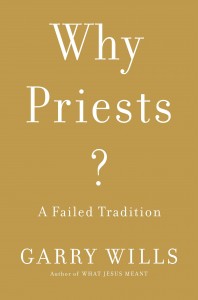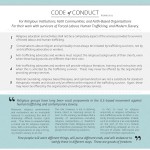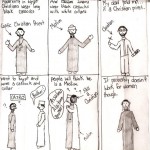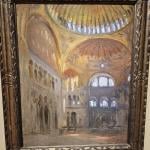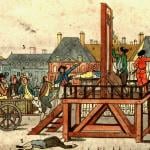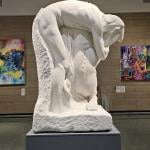Pulitzer Prize-winner Garry Wills spoke recently to Stephen Colbert, one of his fellow Roman Catholics, about the pending papal conclave.
Colbert: So, you’d rather there be no priests at all.
Wills: Yes.
Colbert: What about popes?
Wills: Oh, aren’t they priests?
Colbert: They’re super-priests.
Wills: Nope.
Colbert: So you’d like it to go from Benedict the 16th to Nobody the 1st.
Wills: Very good idea. (The Colbert Report, February 11)
Garry Wills has thought a lot about the priesthood. He seriously considered becoming a Jesuit priest, and spent five years in seminary. He wrote a book called Why I Am A Catholic and coined the phrase mater, si, magistra, no (misattributed to William F. Buckley). He’s also won a Pulitzer Prize for non-fiction and a National Medal for the Humanities. His new book, Why Priests?: A Failed Tradition, criticizes the institution of the priesthood from at least three points of view:
1) the theological, by analyzing the Epistle to the Hebrews
2) the historical, by looking at the role that priests have played in politics and socioeconomics
3) the symbolic, pointing out what he sees as monarchical overtones in the way they present themselves — for example in garmentry, or the spectacle of the mass
Wills has already defended his arguments publicly quite a bit, so if you want a standard overview of Why Priests? watch the hilarious video linked above or Wills’ short interview with Charlie Rose. In our interview, we pose him some questions he hasn’t fielded yet — including one, later on, about how the Internet might change ecclesiastical politics.
☧ ☧ ☧ ☧ ☧
Erik Campano: It’s not only Roman Catholics who have priests. So do Anglicans and Eastern Orthodox [Ed.’s note: I acidentally omitted the Mormon priesthood.]. And Anglicans, in particular, have more liberal stances on social issues like sexuality and so forth. But they also, like Roman Catholics, sometimes wear colorful vestments, and Anglican-tradition high churches — like St. Thomas here in New York — have more elaborate ceremonies than most Roman Catholic parishes. And they also claim that it’s only the priest who can enable the Eucharist, and so forth. So are priests as undesirable in the Anglican or Eastern Orthodox traditions?
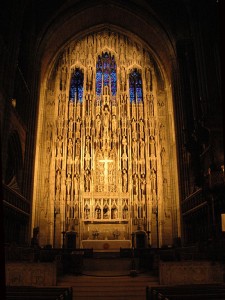
Anglican Communion
Garry Wills: The idea of a separate Christian priesthood is as invalid for the Anglicans as for the Catholics because it, too, is based on the Letter to the Hebrews, which is riddled with fallacies. The basic point of my book is this: it comes from Luke 9, when the disciples try to stop someone from casting out devils in the name of Jesus and he says, why do that? They’re doing it in my name. If they’re doing it in my name, they’re not against me. Well, the priesthood has, in all cases, Orthodox or Lutheran or Anglican or Catholic, has been a way of saying, stop, to people who don’t have the priesthood, of dividing the body of Christ. Owning Jesus can be claimed by lots of sorts, but it’s especially claimed by priests who are exclusive in their worship credentials.
The word power appears a lot in your book. You describe priests as “a kind of walking holiness” and say that “holiness can be a form of power”. You say that people think they need priests as mediators of grace, so they treat priests with deference. Penitents trusts them with their deepest secrets — not just in confession, but in pastoral counselling —
— and in extreme unction —
— and then you ask: how can people “so cosseted, set so on high, so deferred to so universally, not think of themselves as exceptional beings?” Answer your own question. You yourself say you’ve known a lot of humble priests.
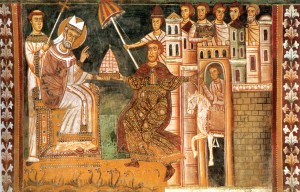
Some don’t, of course, because they think it’s just the Spirit acting through them, but the real problem is that the priest has become the sole conduit of grace through communities. Paul said that there are many gifts of the Spirit among you: there are readers, healers, teachers, ethicists, speakers of psalms. All of those ways of responding to the Spirit have been collapsed into the priest, who is the sole person who can forgive sins, marry, usually baptize, do last rights, and, of course, consecrate at the altar. That monopolizaton of grace is the root of spiritual power, was often married to political power, and was the justification for temporal power. After all, the early arrangements by which Constantine gave Sylvester the pope the power to move his realms, was on the grounds that Christ’s kingdom on Earth should be deferred to by priests, starting with the Roman Empire. [Ed’s note: the accuracy of the “Donation of Constantine” story is disputed.] So this spiritual power is translated into temporal power, and has had mass slaughter effects. The church was able to massacre heretics in droves: Albigensians [Ed’s note: a medieval non-Manichean movement which burgeoned around the city of Albi, France], Huguenots, and so forth.
Your word monopolization connotes economics. And priests are people who make a profession out of their religious beliefs. Literally, by “professing” Christianity, they are able to survive. After ordination, they’re often almost guaranteed housing, food, and medical care for life, and in some cases — you point out, for example the the Bishop of Pittsburgh — they’ve lived in mansions. An Episcopal Bishop in New York has a compensation package which amounts to around $300,000 a year. That’s an upper-middle class lifestyle. Nowadays, and historically, what economic incentives have there been for people to become priests and for the institution to survive?
In the past, the second or third son would become a priest to advance the careers of the first sons. Often the first son would go into law, administration, government — that sort of thing — the second son into the military, and the third son into the priesthood, because he gets more than he gives, in economic terms. That was true of nuns, too. With Medieval and Renaissance nuns, it was often the case that the first daughter has to be married, and so all the money for the dowry has to be concentrated on her or the second daughter, and the third daughter, who wouldn’t have enough money for a dowry — she’d likely enter a convent and if she were to come from an aristocratic family, likely become an abbess. So it’s always had an economic bolstering effect on families who devoted their children to religion.
That’s despite the fact that some priests live relatively poorly?
That’s sometimes been true.
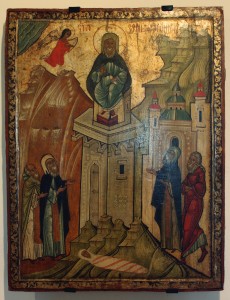
One of the great misunderstandings is that celibacy was imposed. Actually, celibacy was accepted in the 5th century because it was popular. Early priests and bishops were married. Some of Augustine’s best friends and worst foes were married bishops. In the fourth and fifth century, there was an tremendous cultural shift, which Peter Brown has beautifully described in Body and Society, in which late neo-Platonic and stoic ideas of the body as being a prison that the soul has to wrestle itself free from, led to feats of competitive asceticism. The Desert Fathers, the Holy Virgins, starved themselves, purged themselves, and lived in total isolation. Simeon Stylites, on his pillar, was a world celebrity. Counsels consulted with him. People went to him to bless their marriages. So bishops like Althanasius in the fourth century decided that we’re no longer the holy people. They don’t care about our blessing. They care more about the Desert Fathers’ blessing. So, he said, we’ve got to adopt some of the ascetical practices to win people’s respect now. We’ve got to start fasting, purging ourselves, and giving up marriage. And that cult of asceticism continued into the middle ages with bulimic nuns and emaciated saints. That was a case where the church jumped on a fad and can’t get off.
The same thing is true of monarchy. The church became a monarchy in the middle ages when that became the respected form of authority. And it was kind of expectable that if you had authority, you would have some kind of monarchy. And then, of course, they can’t get rid of it until it’s wrested away from them violently in the 19th century, when Pius IX said, you’re going against God’s word if you take away my kingdom. And the Italians said, OK, we’re going to take it away anyway. At that time, he fulminated that democracy is an endowed form of government, monarchy is the only form — and while he was doing this, John Henry Newman [Ed.’s note: a cardinal, originally an Anglican priest, then received into the Roman Catholic Church] wrote to Ambrose St John [Newman’s very close friend], “the way he’s going we have to hope that he dies.”
Ordinations of priests are striking in that they look about as close to a royal coronation as anything we have in a modern Western republic. Is that symbolism intentional?
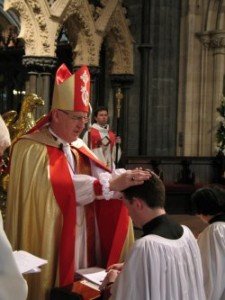
Well, sure. You know, the pope wore a triple crown which was his spiritual and temporal authority, and the blessing of the spirit above. That was a terrific coronation. The crowning of a king, at one point, was derivative from the crowning of the spiritual lords. Because the archbishop, or whoever in the realm, would christen the king. That was the real source of his power for many. Richard II said:
Not all the water in the rough rude sea
Can wash the balm from an anointed king
[Ed’s note: The real Richard II of England did not say this; Shakespeare wrote it.]
We’re picking a new pope. Well, actually, we are not picking a new pope. A group of cardinals is doing this, in a secret conclave. What is the purpose of this secrecy? What’s the role of secrecy in maintaining an ecclesiastical power structure?
The idea is that only a few at the top commune with God. Their attitude is, we’re giving the Spirit freedom. We’re not responding to pressure from below. We’re taking ourselves apart and going into retreat, as it were, spiritual isolation, so that God can speak to us directly. They say that less now, but when I was growing up, the idea was: they’re so up there, away from us, that the Spirit can commune with them in a totally unmediated way. Well, contrast that with the early church. Cardinal Ratzinger was asked, aren’t you concerned that so many Catholics don’t seem to be paying attention to the teachings of the Vatican? And he said, not at all, because after all, doctrine is not formulated by popular vote. [Ed.’s note: the quote usually attributed to Ratzinger is actually, “Truth is not determined by a majority vote.”] Well, what are the main doctrines of the church? Trinity? Incarnation? Resurrection? They were formulated by popular vote. When the Nicene and Antioch Councils gathered, those were hundreds of bishops, who were all chosen by their people.
The cardinals are simply inner bureaucracy. As recently as the 19th century, there were cardinals who were secretaries of state. The cardinals are a cabinet that struggles to keep its power. That’s why the idea that reform is going to come out of this [papal conclave] is just absurd.
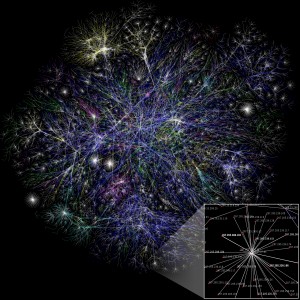
Information in the 21st century is, and will be, harder to protect. It’s harder to maintain secrecy. Let’s say you have a scandal — say financial impropriety. In the old days, this sort of thing might happen, a journalist might cover it, it goes in the newspaper for a day, but then a year later, everybody would have forgotten about it. Nowadays, if it happens, ten years later, if you put the priest’s name into Google, the financial impropriety is still going to be there. Is the check on a priest’s behavior stronger now, simply by the fact that more people have access to more information? What impact are the Internet and information technology going to have on the institution of the priesthood?
You’re right that it’s made many aspects of life more porous. On the other hand, it’s made people able to control information in new and different ways, too. If I followed your logic, I think it would mean that the American President, among other things, and political leaders, would lose their power to control information. But I’m not sure that’s happening. There are countermeasures that you can take. But I think you’re right — of course, the capacity to cover up is finished. And in fact, one of the priests in our church, now, said during the height of the Boston scandal, why are they dwelling on it? We’ve heard it all. It was said, and then they keep repeating it and repeating it.
Well, a) that was not true, there was new stuff coming out, but he didn’t want to admit that, but b) not everyone can assume that you’ve heard the first report, so it gets repeated so everyone can hear it. And then, as you say, it goes into the cloud, onto the Google, and is instantly recallable. In my day, if a girl got pregnant, you could cover it up by sending her to another town. The tacit social convention that we don’t want to upset things was observed at many levels, and of course, that was wonderful for the priests, because even things like priests getting stopped for drunk driving was instantly covered up then. Now, cops have to put it in the record, and now there’ll be a film of the car being stopped. There are all kinds of things that are going to militate against the social conformity endorsing mechanism that used to exist.
You focus on the Roman Catholic priesthood, because that’s your tradition, and on how the priest’s power comes from his claim that he can enable transubstantiation. But by the end of the book, the reader is left wondering: how much of the power of the priest is really about transubstantiation, and how much just about a mystical aura that surrounds clerics of all kinds? In other words, can we extrapolate your argument to answer the question: why clerics?
Any organization has to have structure. The early church chose servants (διάκονοι) and overseers (ἐπίσκοποι), but not priests, in the New Testament, except in that one odd letter. [Ed.’s note: Wills is referring to the Epistle to the Hebrews, and specifically the Melchizedek passages, Hebrews 4:14 – 9:25.] But the attitude around the priest was that he was especially holy. He was wrapped in all these gorgeous garments, because he was doing something no one else could do: perform the miracle at the altar.

The aura of holiness was important, in a deleterious way, in the whole molesting scandal. Because it was inconceivable to many people that these hands, that are bound at ordination, the sole hands that can take bread and change it into the body and blood of Christ, could be touching a boy’s penis. Think of it in terms of the victim. He’s a holy man his parents are deferential to. He genuflects toward him in services. Can it be that the holy man does this? Is it OK? He says it’s OK. They were afraid to say it even to their parents or their siblings.
And when they did say it, the first reaction, as reported in all these stories, was oh no, the Father couldn’t do that. The Father was too holy. And then the parents, when they became convinced, what did they do? Go to the cops? This is a crime. No, you didn’t do that with the church. You go to the holy Father. And they say, oh, no, the Father couldn’t do that. And their first reaction in many reported cases was that the boy was lying. And the parents were torn in many of these cases; they had to believe that the boy was lying, or that the Father was lying to them. And then when the priest finally admitted that something had been done to the boy, they said, on the other hand, you don’t want to cause scandal: a very powerful word in the tradition. Scandal hurts the church, they said. You don’t want to deprive the church of the spiritual good it does to other people by rubbing in this horrible crime that was done to your son. And then if the parents didn’t hush up, they gave them hush money. And then when it came out, what was the response of the church? Oh, the press is out to destroy the church. I was just talking to David Kertzer [Ed.’s note: former Provost of Brown University, and scholar on Italy and the Vatican], who has been over in Rome doing work on his history of the papacy, and he said that the attitude in the Vatican is that the press — especially the New York Times and the Boston Globe — are just using this to hurt the church.
Well, none of these sorts of things would happen if there were not this aura of holiness around the priest.
One fascinating thing about the clergy sexual misconduct scandals is that they keep on happening. Especially since the 1980s, they’ve been in the media and nearly every time, we discover that church officials tried to cover up the case. Why haven’t priests and bishops just become open about when a misconduct case occurs?
They’re very protective of the institution, so they try to minimize, hide, profit, not discipline, and — this is just a guess — there’s a lot more there. Not only sexual scandal but financial scandal. Jason Berry has shown how secrecy has led to terrific financial corruption. And it’s not simply priests molesting boys, it’s priests having affairs. So for the protective instincts, of defer and distract — all of those machineries are in motion, and it’s very hard to break them. One of the aspects of the molestation scandal in Boston, where it became most salient f0r a while, was when the people in the parishes found out that hush money was being paid to the victims. And of course, that’s money they had donated. There was a great reaction against the Voice of the Faithful, which is what that movement was called. Some bishops forbid the formation of chapters in their dioceses. And it’s largely faded away because of that. They’re protecting a lot of the corruption that breeds in secret.
Do you have a positive hope for ecclesiastical structure in the Catholic church, and in Christianity?
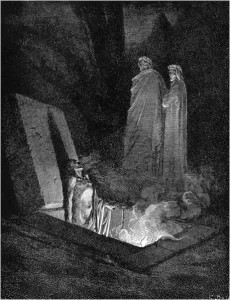
(illustration of Dante’s Divine Comedy)
I do. When I talk to other Christians, we realize that we have a closer tie to each other than our bureaucratic superiors. When I talk to an Anglican or a Lutheran, I don’t care that they’re not Catholic, and they don’t care that I am. That’s the ideal of Luke 9. If they do it in my name, they’re all one. They’re the body of Christ. That’s the real church that will never die; the gates of Hell will not prevail; and I think that will prosper despite the various ecclesiastical hierarchies.

